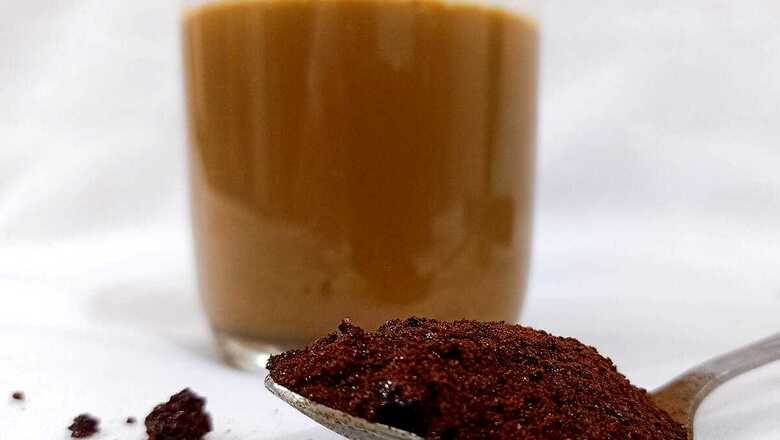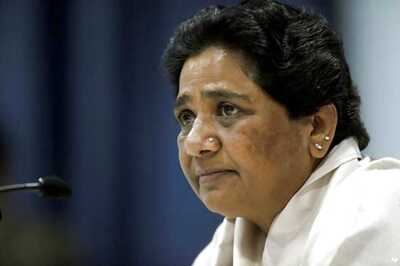
views
With the latest controversy around Cadbury Bournvita, I confess that I’m feeling guilty and reconsidering my decision. A lot has already been written about the controversy and how the product is a “sugar bomb”, but the first thing we need to change in our homes is the consumption of sugar.
Traditionally, in Indian households, cheeni (sugar) is considered auspicious and mothers are not used to rationing it from their children’s diets. In fact, we believe that children and youngsters are the fittest and can eat anything and everything.
You may have noticed grandparents serving paranthas slathered with butter, hot chapatis dripping with desi ghee or bowls of greasy and sweet homemade dessert. This is often considered a sign of their love and care.
Socially and traditionally, we believe that it is not children who should ration sugar or oil but only the elderly or people with health issues, thanks to popular cliches such as – Ab nahin khaoge toh kab khaoge (roughly translated to ‘this is the time to eat as you wish’).
But with changing times, we have now realised that India is reeling from the burden of lifestyle and non-communicable diseases (NCDs), and it is time to change the basics. These NCDs include cardiovascular diseases, cancer, diabetes and chronic respiratory diseases – contributing to around 3.8 crore (68 percent) of all deaths globally and to about 58.7 lakh (60 percent) of all deaths in India.
How much sugar is right?
A higher consumption of free sugar, often exceeding the recommended 5 percent intake, is linked to obesity in children, dental caries and NCDs in later stages of life. You can blame the increased air pollution and lifestyle diseases, changing environmental conditions, the post-pandemic world, but there is an urgent need to change our children’s diets.
Coming back to Bournvita, the label states: ‘Add 2 heaped teaspoons (20 grams) of Bournvita to a cup of hot or cold milk’.
Not many of us focus on ‘20 grams’ and use our own estimates. Rather, we focus on “heaps” and end up mixing the powder in milk, sometimes adding extra sugar as well. The company claims that “every serving of 20 grams of Bournvita has 7.5 grams of added sugar, which is approximately one and a half teaspoons”.
“This is much less than the daily recommended intake limits of sugar for children,” a company spokesperson told News18. But experts claim that it also includes “hidden sugar”, taking the total sugar content to 73.1 grams in every 100-gram serving.
Soumya Swaminathan, the former chief scientist of the World Health Organization, tweeted that hidden sugar in such products is leading to an increase in the incidence of diabetes, even in low-income families.
Hidden sugar, salt & fat, but especially sugar is killing us! The rates of rise of #diabetesmellitus in low income families is terrifying. We need to change our #diets, #foodsystems to deliver for people’s health. Behaviour change also key, along with policy levers https://t.co/LMUYeuw3FJ— Soumya Swaminathan (@doctorsoumya) April 16, 2023
The American Heart Association recommends children and teenagers should consume less than 25 grams, or six teaspoons, of added sugar per day. Similar estimates are given by the UK’s health agency, National Health Service (NHS). It says children aged 7 to 10 should have no more than 24 grams of free sugars a day or six sugar cubes, whereas children aged 4 to 6 should have no more than 19 grams of free sugars a day or five sugar cubes.
Malt-based beverages and health drinks
It’s not the first time the health benefits of ‘malt-based’ drinks have been questioned. In fact, a group called Nutrition Advocacy in Public Interest (NAPI) keeps questioning the benefits on a regular basis. In 2018, it also asked Bollywood actor Amitabh Bachchan to discontinue his association with another malt-based drink due to its high sugar content.
These drinks claim to contain “unique” and “scientific formulas”. Bournvita claims to contain an “inner strength formula” that can help develop the brain, bones and muscles as well as strengthen immunity.
But experts believe that these drinks may not even be the right supplements for children. The parental guidance booklet published by the Indian Academy of Pediatrics (IAP) in 2021, recognised that malt-based milk supplements are commonly used in India.
While the primary ingredient is malt, mostly barley, or cereal derivative, the secondary ingredient is invariably high in sugar. It is the free sugar that becomes a matter of concern, as it is not only addictive and a habit-forming substance but also leads to health problems such as weight gain, dental caries, and risk for chronic lifestyle-related ailments.
These milk supplements belong to the ultra-processed food category and the IAP suggests that they should “best be avoided”.
“Advertising has often portrayed supplements as full of energy, vitamins, and minerals,” the guidance booklet stated.
But the IAP clarifies, in the same booklet, that the quantities of micronutrients present in these drinks may give “some benefit to children who have their deficiency” but have “no role in healthy kids”.
“Even for providing the vitamins and minerals, the same amount can easily be obtained from other foods which are not only cheaper but also do not have associated ill effects as with these drinks,” the booklet states. “Results of improved calcium clearly indicate that it is just the milk that was responsible for it.”
The document said it all.
Advertisements influence parents
The way the products are advertised plays a significant role in modifying parents’ choices.
Sample this: The American Academy of Pediatrics (AAP) recommends that “nutritional supplements, such as Pediasure, only be used when children are unable to receive adequate nutrients from their diets”.
In a study published in 2019, authors found that despite AAP recommendations, over a third of parents chose to include the product in an ideal meal plan (IMP) for their child.
“This percentage grew dramatically with increasing body mass index (BMI), showing that children who fell within the overweight and obese categories had parents who chose Pediasure for an ideal meal plan at a significantly higher rate,” the study found.
The reason could be the popularity of dietary supplements widely advertised as “clinically proven to help kids grow”, which possibly ends up convincing some parents that not consuming nutritional supplements may put their child at a disadvantage.
What do Indian guidelines recommend?
India has coined an acronym – ‘JUNCS’ for “junk foods, ultra-processed foods, nutritionally inappropriate foods, caffeinated, coloured, carbonated (foods or beverages) and sugar-sweetened beverages”.
According to the IAP guidelines on ‘JUNCS’, their consumption is associated with higher free sugar and energy intake. It is also associated with higher BMI and possibly with adverse cardio-metabolic consequences in children and adolescents.
The group recommendations, published in 2019, ask to avoid consumption of JUNCS by all children and adolescents as far as possible and limit their consumption to not more than “one serving per week”. In fact, the guidelines recommend the intake of regional and seasonal whole fruits over “fruit juices” in children.
No point blaming Bournvita
The entire controversy began when an influencer deleted the viral reel after receiving a legal notice from the company on April 13. In the video, which was seen by more than 12 million people, Bournvita was called out for having sugar, cocoa solids, and cancer-causing colourants.
In an email to Mondelez India, I requested “some scientific documents or peer-reviewed studies which were used to claim the health benefits mentioned on the pack of Bournvita”. The claims made on the packet are “active brain, strong muscles, strong bones and immune system”. I asked for proof for each of these claims.
The reply from the company was a standard statement but I realised Bournvita’s claims are backed by adequate documents required for selling products in India. While the company did not share any study, which can substantiate the claims backed by solid research, they did substantiate them in some ways.
The company said, “We would again like to reinforce that the formulation has been scientifically crafted by a team of nutritionists and food scientists to offer the best of taste and health.”
“All our claims are verified and transparent and all ingredients have regulatory approvals. All the necessary nutritional information is mentioned on the pack for consumers to make informed choices,” it said.
I also reached out to the Advertising Standards Council of India (ASCI) – the watchdog, which works on misleading advertising, over the claims on the pack of Bournvita.
Manisha Kapoor, chief executive officer and secretary general of ASCI, told News18 that earlier in 2018, the organisation had already examined a similar complaint against Bournvita.
“In 2018, ASCI had examined a complaint against Bournvita for making claims related to muscles and bone strength and active brain,” she said, explaining that the company was able to meet the requirements of the committee.
The company had told ASCI: “Bournvita is fortified with Vitamin D and phosphorus, both required for maintaining bone health. Bournvita is also fortified with iron and other micronutrients iodine, and B9 and B12 vitamins that are directly responsible for blood circulation and brain function. Due to the presence of these ingredients, Bournvita could make a supportive claim that it has ingredients that help build muscle, bones and active brain.”
Hence, the entire controversy fizzles out.
The crux of the matter:
As paediatric obesity rates continue to climb across the globe, it is essential that India starts creating stronger food and advertising standards. Despite several discussions to bring a health star rating, food regulator FSSAI has not launched the system for cautioning the consumer against excess calories associated with the non-medically necessary use of nutritional supplements.
Dear mothers, instead of blaming Bournvita, it’s time to change our own mindset. We must recognise that a healthy diet in early childhood is essential for optimal growth, while laying the foundation for later years and the prevention of chronic ailments in future.
Read all the Latest India News here




















Comments
0 comment